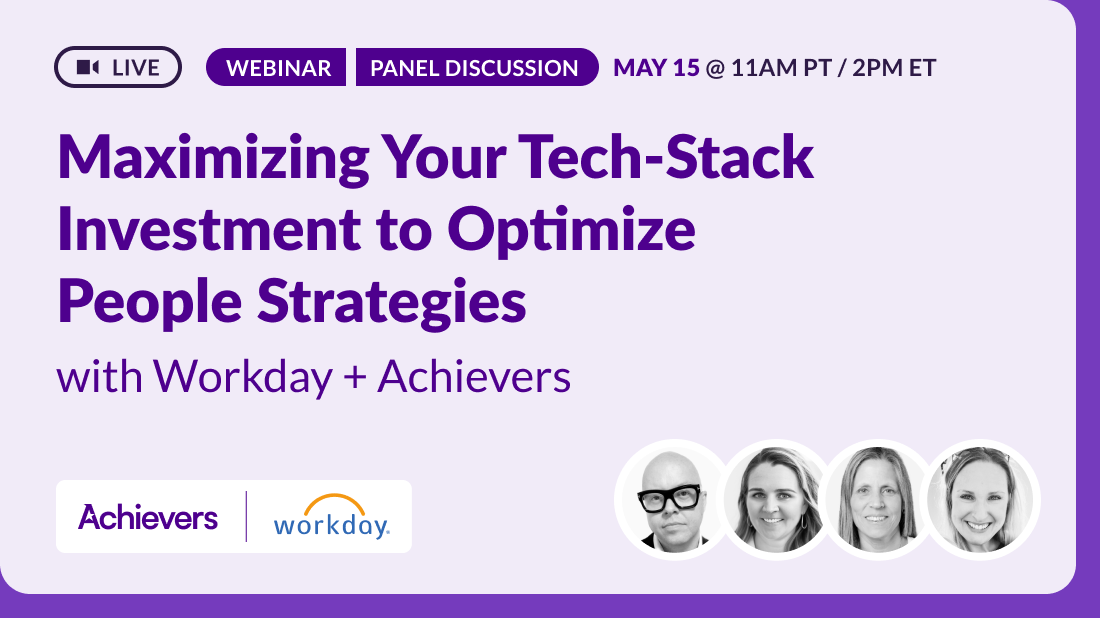Table of contents
What are the best words to describe company culture? It’s a question every organization should ask. Company culture is a big part of your organization’s success, so it’s important that you understand how to define it. Culture sets the tone for everything your team does, directly affecting employee engagement and productivity. As a result, the quality of your company culture impacts your bottom line — for better or worse.
Company culture is defined as a set of values, expectations, and practices that guide your team each day. You can observe culture through the actions of managers and employees, but sometimes it’s difficult to describe or quantify. It’s not just a mission statement or statement of values, though these can help show what you want your culture to be.
Instead, you need to create a culture where all employees feel welcome. You need the right words to describe where your company culture is now and where you want it to go. For current team members, defining your culture fosters a sense of unity and ensures everyone is on the same page. And describing your culture in clear, powerful language helps attract more talented employees who align well with your organization.
So, how should you describe your company culture? Let’s find out!

40 positive words to describe company culture
Do you want to make your company stand out? Then use one — or more — of these positive words that describe a great company culture:
1. Rewarding
A rewarding workplace starts with building a culture of recognition. That means recognizing employees for all their contributions to the team, both big and small. When employees feel truly valued, they’re more engaged and productive. For best results, adopt an employee recognition solution that enables frequent, personalized social and monetary recognition — the latter in the form of a points-based reward system. This lets employees choose rewards they actually want and easily award points to other team members.
2. Engaging
Employee engagement is directly linked to the productivity of your team. But it can be tricky to measure just how engaged employees really are. That’s where employee engagement platforms come in — they enable employee voice by giving you direct, easy-to-access methods to gather, analyze, and act on employee feedback. Using tools like pulse surveys and always-on, AI-powered HR chatbots, these platforms make employees feel heard and give your organization access to the insights it needs to act on institutional problems before they impact its bottom line.
3. Challenging
Going to work every day becomes a chore if your organization doesn’t provide opportunities for growth. Employees crave a challenge — one that’s stimulating, exciting, and gets them out of bed in the morning. It’s important for managers to foster a work environment where employees not only feel empowered to take on new challenges, but have the resources they need to succeed.
4. Collaborative
Every job is more enjoyable when you have colleagues that share in your successes and help with setbacks. Collaboration builds morale and gives your employees a sense of identity within the organization. It helps build a stronger team that can weather both the good times and bad.
5. Fun
Not every moment at work needs to be a blast, but it’s important to take time to have fun with your team. Building camaraderie through playing games or organizing an outing gives employees a chance to be themselves and get to know each other better. Give your team members a chance to let their hair down and be themselves, and they’ll respond with renewed motivation.
6. Connected
With remote work rapidly becoming the new normal, it’s more important than ever to actively foster connection and belonging at your organization. Employees with a strong sense of belonging are twice as likely to say they’d recommend their organization to others and that they’re enthusiastic about their job. Aligning company and employee values, ensuring all employees feel accepted and welcomed, and regularly practicing recognition are just a few of the ways to support belonging at work. It’s also important to have regular, scheduled check-ins with your team and keep tabs on how everyone’s doing — without micromanaging.
7. Transparent
If you want your team to trust and respect you, transparency is a must. That means regularly updating your team on company operations and being honest at all times. Even during a crisis, leadership must address problems head on to avoid losing the confidence of their staff.
8. Inclusive
Creating a diverse and inclusive culture is vital to your company’s success. Harvard Business Review found that the most diverse enterprises enjoy 9% higher earnings before taxes and income (EBIT) margins. And McKinsey discovered that organizations that fall in the top quartile for racial and ethnic diversity are 35% more likely to have financial returns above the median for their industry. Creating an inclusive culture means more than just having a diverse workforce, of course. Ensure that everyone on your team, regardless of background, feels valued, respected, and involved.
9. Welcoming
The first days, weeks, and months at a new job set the tone for everything that comes after. A welcoming onboarding process can mean the difference between a successful, long career at your organization and a dissatisfied employee who leaves for a competitor in short order. When new employees emerge from onboarding feeling like part of a team, knowing what they have to do and how to do it, they’ll continually strengthen your organizational culture.
10. Innovative
The world is always changing, and sooner or later your company will need to innovate to stay competitive and relevant. Young, talented employees are particularly drawn to companies that are willing to think outside the box and try new strategies to keep them engaged and happy at work. Leadership should serve as examples by showing and rewarding creativity to set the tone for a culture of innovation.
11. Flexible
Flexibility at work includes everything from offering employees a variety of scheduling options to allowing team members to work remotely when it makes sense. Employees appreciate the benefits to work-life balance and their daily work experience that flexibility brings. A true culture of flexibility goes beyond this, however, and encompasses an agile, adaptable approach to work where employees aren’t afraid to adjust processes to improve a project or reach a goal.
12. Positive
Especially when situations feel dire, it’s important to set a positive tone to keep employee morale up. Positivity gives people hope and a reason to keep going, even on bad days. A positive culture goes hand-in-hand with a transparent, healthy, and fun workplace.
13. Motivating
Want to see your team really grow? A company culture that motivates employees to do their best work and take on new challenges can take your team’s productivity to new heights. This starts with showing appreciation to employees for their hard work by developing an organization-wide employee recognition program.
14. Trusting
Trust is the cornerstone of a great company culture. When employees trust managers, they feel secure and confident in their work. They believe in organizational goals because they trust the people who set them, so they’ll go above and beyond in pursuit of these milestones. Establishing mutual trust among the whole team is a must for aligning employees with your organizational culture, a driver of sustained business success.
Start practicing cultural alignment techniques that drive business performance.
15. Inspiring
Employees who feel inspired do work that really shines. But how do you foster a company culture that leads to everyday inspiration? Start by defining your company values — having a strong sense of who you are and what you want to accomplish helps set meaningful goals all team members buy into.
16. Empathetic
Emotions can get messy, but ignoring them will only cause problems to fester. Instead, listen to your employees when they speak and show that you empathize with the issues they raise. Foster an environment of psychological safety where employees feel comfortable expressing themselves honestly — whether in person or through an anonymous feedback channel. Then show team members that your organization truly understands their concerns by acting on their feedback.
17. Healthy
A healthy work culture is one that prioritizes employees’ physical and emotional wellness. Establishing employee wellness programs helps your team avoid burnout and form healthy habits that will benefit them on and off the job. Team members take notice when their employer shows it’s invested in them as people, not just as employees.
18. Autonomous
Autonomous work refers to the level of freedom and independence that employees have in performing their duties. This includes the ability to decide when and where they work, as well as having the authority to make decisions that contribute to their overall job performance. But why is this important? Enabling autonomy instills employee’s trust in your company and helps build employee satisfaction — an important piece of employee retention.
19. Nurturing
Picture this: a workplace where growth isn’t just encouraged, it’s celebrated. It’s a place where mentorship, professional development, and personal well-being intertwine, fostering a community where every employee feels valued and empowered to reach their full potential. In this nurturing environment, productivity soars, innovation flourishes, and employee satisfaction becomes the cornerstone of organizational triumph.
20. Driven
A driven culture encapsulates the essence of your company by highlighting its relentless pursuit of excellence and achievement. It signifies a workforce fueled by ambition, determination, and a commitment to surpassing goals and expectations. In a driven culture, employees are inspired to push boundaries, innovate, and constantly strive for greatness, propelling the organization toward success.
21. Curious
A curious company has an insatiable thirst for knowledge, exploration, and growth. It means you’re not content with sticking to the status quo; you thrive on asking questions, seeking new solutions, and embracing continuous learning. In a curious culture, innovation flourishes, creativity abounds, and employees are empowered to challenge assumptions.
22. Progressive
A progressive culture embodies a forward-thinking ethos, where innovation, diversity, and adaptability reign supreme. It’s not just about keeping pace with change; it’s about leading the charge, fostering an environment where bold ideas flourish, barriers are shattered, and every step forward propels the organization into a brighter future.
23. Supportive
When it comes to defining your company culture, supportive should be more than just a buzzword. It should be a commitment to creating an environment where every individual feels valued, heard, and empowered to thrive. With support as the cornerstone of your culture, you can foster collaboration, trust, and growth for new and existing employees.
24. Casual
Embracing a casual culture can breathe fresh air into any workplace. By encouraging open communication, flexible work attire, and a relaxed environment, a company can cultivate a sense of camaraderie and trust among employees, leading to increased morale, productivity, and overall satisfaction. It starts with leadership setting the tone, prioritizing transparency, and valuing individuality, ultimately creating a space where people feel comfortable being themselves while delivering their best work.
25. Empowering
To cultivate an empowered culture, it’s vital to establish clear goals, provide ongoing training and development opportunities, and foster an environment of trust and accountability. By empowering employees to take ownership of their work and offering avenues for growth and innovation, a company can unlock its full potential and create a workforce that feels invested, motivated, and eager to make a difference.
26. Respectful
A respectful culture encourages open dialogue, actively listens to diverse viewpoints, and sets clear guidelines for respectful behavior. By prioritizing empathy, understanding, and inclusivity, a company can create an environment where mutual respect is ingrained in the culture, fostering trust, collaboration, and ultimately, organizational success.
27. Adventurous
An adventurous workplace is where every day feels like a thrilling journey, where taking risks is not just encouraged but celebrated. It’s an environment where creativity reigns supreme, and employees are empowered to explore uncharted territories, break free from the norm, and forge new paths to success. These companies are risk-takers where the spirit of adventure fuels innovation, propelling the organization towards exciting new possibilities and unprecedented growth.
29. Nimble
A nimble culture sets the stage for agility, adaptability, and innovation. It’s the secret sauce that allows companies to pivot quickly in response to changing market trends, emerging opportunities, and unforeseen challenges. By fostering a nimble culture, organizations empower their teams to stay ahead of the curve, seize new opportunities, and navigate with grace and efficiency.
30. Agile
Not to be confused with nimble, an agile company embraces a mindset that empowers employees to thrive in a fast-paced environment. By embracing agility, organizations can pivot swiftly, respond to market shifts with precision, and continuously evolve to meet the needs of customers and stakeholders, ensuring they stay ahead of the curve.
31. Sustainable
A sustainable culture goes beyond profitability to prioritize environmental preservation, social equity, and economic resilience. By integrating sustainable practices into every facet of operations, from supply chain management to employee well-being, companies can not only mitigate their impact on the planet but also cultivate enduring relationships with customers, communities, and future generations.
32. Creative
The word ‘creative’ paints a vivid picture of a company brimming with innovation, imagination, and ingenuity. It’s the spark that ignites groundbreaking ideas, fosters out-of-the-box thinking, and drives transformative growth. In a creative culture, employees are empowered to unleash their full potential, explore new possibilities, and shape the future of the organization through inventive solutions and inspired collaboration.
33. Easygoing
Imagine a workplace where stress takes a backseat, laughter fills the air, and colleagues feel more like friends than mere coworkers. That’s an easygoing culture. Working in such a laid-back atmosphere not only promotes mental well-being but also fosters creativity, collaboration, and overall job satisfaction, making it an enticing destination for those seeking a fulfilling career where they can truly thrive.
34. Energetic
Embracing an energetic company culture isn’t just about infusing the workplace with excitement; it’s about unleashing a powerful force for growth and innovation. It’s a dynamic environment where every team member brings their A-game. Beyond just achieving goals, an energetic company cultivates a vibrant atmosphere that attracts top talent and nurtures a community of passionate individuals committed to making a meaningful impact.
35. Ethical
Operating ethically isn’t just a moral imperative; it’s a strategic necessity for long-term success. By prioritizing ethics, a company builds trust with customers, earns loyalty from employees, and maintains a positive reputation in the marketplace. In today’s world, being ethical isn’t just the right thing to do—it’s a cornerstone of sustainable growth and prosperity.
36. Enterprising
An enterprising company culture is characterized by a relentless drive for innovation, initiative, and forward-thinking. It’s a dynamic environment where employees are empowered to take risks, explore new opportunities, and drive impactful change. In this culture, creativity flourishes, challenges are seen as opportunities, and the pursuit of excellence is a shared passion that propels the organization toward new heights.
37. Visionary
A visionary culture describes a company that strives to transcend the present and imagine a future of boundless possibilities. It signifies an organization that is not content with the status quo but instead strives to innovate, lead, and shape the industry landscape. In a visionary culture, employees are inspired to think boldly, challenge conventions, and work towards a common vision, propelling the company towards long-term success and impact.
38. Strategic
Working for a strategic company offers employees the opportunity to be part of a forward-thinking organization that carefully plans and executes its goals. By aligning actions with long-term objectives, employees can feel confident in their contributions knowing they’re working towards a greater purpose.
39. Accelerated
An accelerated company culture emphasizes rapid progress, innovation, and adaptability. It conveys a sense of urgency and momentum, where every effort is geared towards achieving goals quickly and efficiently. In an accelerated culture, employees thrive on the adrenaline of fast-paced challenges and leverage their skills and expertise to propel companies forward.
40. Passionate
Working for a passionate company gives employees the opportunity to be part of a vibrant community driven by purpose and enthusiasm. It’s a place where individuals can channel their own passions into meaningful work, surrounded by like-minded colleagues who share a collective commitment to making a difference.
10 negative words that describe company culture
Of course, not every word used to describe company culture is positive. These are a few that you don’t want to hear bandied about at your company, including:
1. Stressful
Chronic stress in the workplace eventually leads to burnout. Be sure to offer employees ample time to take breaks and recuperate from stressful tasks, and listen to their needs before it’s too late.
2. Toxic
High turnover rates, low employee morale, poor communication, and a fear of speaking up are all signs of a toxic workplace. If this sounds like your company culture, start finding solutions to address turnover immediately.
3. Siloed
Teamwork is important, but silos can hinder collaboration between employees. Try breaking down barriers by improving communication and setting goals that everyone can get behind.
4. Micromanaged
While keeping tabs on your team is important, no employee likes feeling their boss breathing down their neck. Micromanaging implies a lack of trust in your employees and is detrimental to confidence and productivity. Managers should approach their role as a coach, place trust in their team, cheer them on, and provide support as needed.
5. Disengaged
Working for a disengaged company can lead to feelings of frustration, apathy, and lack of fulfillment among employees. To change this, focus on providing open communication, opportunities for professional development, and a culture of recognition and appreciation. By actively engaging with employees, addressing their concerns, and investing in their growth and well-being, companies can reinvigorate their workforce and create a more positive and productive environment.
6. Hostile
A hostile work environment can cause immense stress, anxiety, and even harm to employees’ mental and emotional well-being. This is not a word any company wants to be associated with. But if you are, you need to work fast to address underlying issues such as harassment, bullying, or discrimination. By promoting a culture of respect, inclusivity, and open communication, employers can create a safer and more supportive workplace where employees feel valued, respected, and empowered to do their best work.
7. Unsupportive
An unsupportive company is one that neglects employee well-being, fails to provide adequate resources for growth, and lacks a culture of mentorship and collaboration. To improve an unsupportive company culture, you need to prioritize employee well-being by providing resources for growth and actively promoting a culture of mentorship and collaboration. Also, address underlying issues like communication barriers and lack of recognition to create a more positive and supportive work environment.
8. Outdated
If your company clings to traditional practices and fails to adapt to changing times, we’re sorry to say your culture may be outdated. But you can fix this! To bring your company forward, you need to embrace change, encourage experimentation, and empower employees to challenge the status quo. By creating a culture of adaptability and continuous improvement, you can revitalize a stale workplace and keep your company relevant.
9. Biased
Bias, whether unconscious or not, has no place in the workplace. If your employees are reporting incidents of bias or discrimination, nip it in the bud by implementing diversity training for all employees. This will require setting up clear, transparent processes for hiring, promotion, and decision-making where diversity and inclusion diversity and inclusion are top of mind.
10. Bureaucratic
A company may be described as bureaucratic if it has rigid, hierarchical structures and overly complex processes that hinder decision-making and innovation. These companies often prioritize adherence to rules and regulations over agility and responsiveness, leading to inefficiencies and frustration among employees. So how do you fix this? Start by streamlining processes, flattening hierarchies, and empowering employees to make autonomous decisions.
Earn rave reviews for your company culture
Employee engagement is at the heart of all great company cultures. Engagement starts with listening to your employees and giving them a real voice in the workplace. Rewards and recognition also play a key role in keeping employees engaged for years to come.
Achievers Listen is an easy-to-use employee engagement platform backed by science. Its mobile capabilities let everyone on your team provide anonymous feedback where and when they prefer. Robust reporting and analytics features guide your managers from insight to action so employees see the impact of their feedback before they get discouraged.
And it even integrates with Achievers Recognize, an award-winning, mobile-friendly recognition platform. Achievers Recognize makes recognition a part of each employee’s daily experience thanks to engaging social recognition features and a points-based reward system supported by Achievers’ exceptional rewards marketplace.
Start building a culture your employees will brag about by trying a free demo of the Achievers Employee Experience Platform today.





